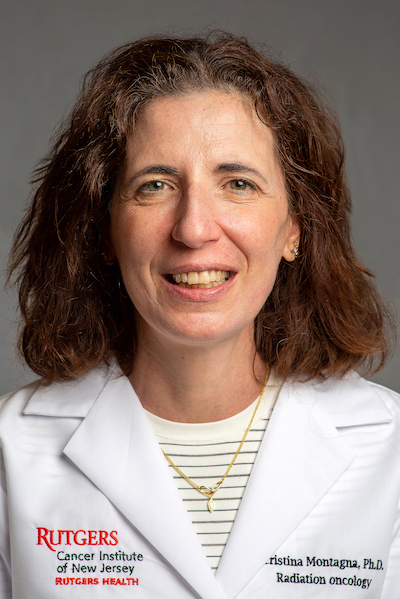 Dr. Cristina Montagna a cancer biologist with extensive expertise in molecular cytogenetic and cell biology. Her laboratory has contributed significant work to the field of oncogene discovery, genomic instability in cancer, and age-related tissue degeneration. She obtained her PhD from the University of Milano where she trained with Prof. Renato Dulbecco (1975 Nobel Laureate for the discovery of SV40 DNA integration in oncogenically transformed cells) in the field of oncogenes and tumor suppressor genes discovery using in culture systems of tumorigenesis. As a second postdoc, she was mentored by Dr. Thomas Ried, Chief of Cancer Genetics at NIH, who established Spectral Karyotyping (SKY), an advanced molecular cytogenetic technique based on Fluorescent in situ Hybridization (FISH) to simultaneously visualize all human chromosomes using pools of chromosome painting probes with unique chromatic properties. While performing comparative genomic analysis of chromosome gains and losses between human and mouse tumors of the breast, she identified Septin 9 (Sept9) as a locus of high copy number gain in the form of double minutes chromosomes (dmin).
Dr. Cristina Montagna a cancer biologist with extensive expertise in molecular cytogenetic and cell biology. Her laboratory has contributed significant work to the field of oncogene discovery, genomic instability in cancer, and age-related tissue degeneration. She obtained her PhD from the University of Milano where she trained with Prof. Renato Dulbecco (1975 Nobel Laureate for the discovery of SV40 DNA integration in oncogenically transformed cells) in the field of oncogenes and tumor suppressor genes discovery using in culture systems of tumorigenesis. As a second postdoc, she was mentored by Dr. Thomas Ried, Chief of Cancer Genetics at NIH, who established Spectral Karyotyping (SKY), an advanced molecular cytogenetic technique based on Fluorescent in situ Hybridization (FISH) to simultaneously visualize all human chromosomes using pools of chromosome painting probes with unique chromatic properties. While performing comparative genomic analysis of chromosome gains and losses between human and mouse tumors of the breast, she identified Septin 9 (Sept9) as a locus of high copy number gain in the form of double minutes chromosomes (dmin).
After establishing her own research group, she continued the functional work on oncogene discovery, and mechanisms of genomic instability on tumor initiation and progression with a special emphasis on women’s health (breast, ovarian and cervical carcinogenesis). She also expanded her interests to studying the functional consequences of genomic instability, particularly aneuploidy, on cell fitness. Dr. Montagna’s work pioneered the discovery that somatic aneuploidy is observed frequently in disease-free tissues. Her laboratory was the first to report accumulation of somatic aneuploidy with aging and to demonstrate that aneuploidization in wild type cells causes senescence. This work is continuing with goals of elucidating how extensive aneuploidy be to induce sensescence, and to analyze the status of aneuploid cells in tissues including whether and how extensively they are eliminated.

